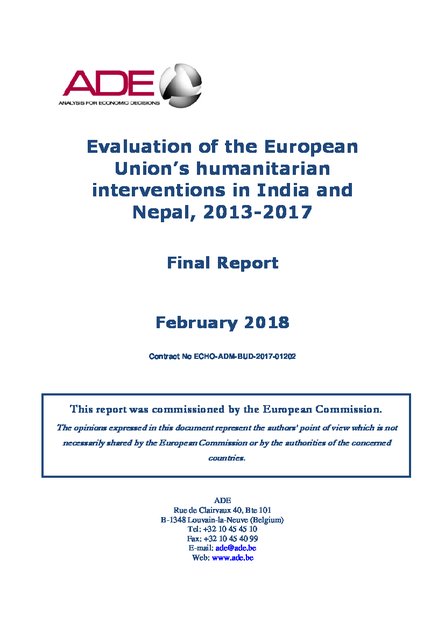Final Report

This report is an independent evaluation of the European Union's humanitarian interventions in India and Nepal during the period 2013-2017, as managed by the European Commission's Directorate-General for Civil Protection and Humanitarian Aid Operations (ECHO). The evaluation draws upon evidence from project data, interviews, field visits and a literature review.
The evaluation concludes that ECHO country programmes succeeded in achieving most project output objectives, with mixed results at an outcome level due to various factors. Better outcomes have been achieved in Nepal than in India due mainly to a less challenging operating environment. Community-based disaster risk reduction (DRR) projects in Nepal in the education and health sectors have been scaled up at to a national policy level contributing to improved resilience of communities with the education intervention providing a good practice example of collaboration.
Five strategic recommendations targeted primarily at ECHO include 1) improving the timeliness and predictability of funding decisions for quick-onset disasters, 2) promoting a programme-based approach for DRR activities, 3) improved cooperation with development actors, 4) using the current transition in Nepal as an opportunity to build on ECHO’s previous DRR work and 5) exploring alternative models for future cooperation with India.
Case Study 2 describes how, in Nepal, ECHO successfully facilitated interagency efforts in achieving sustainable outcomes at both a policy and operational level despite the short project duration and other systemic challenges in bridging the humanitarian and development nexus.
